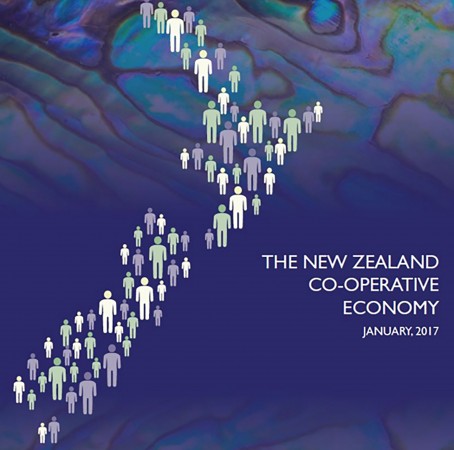New Zealand’s co-operative economy has been comprehensively mapped for the first time, highlighting the importance of a movement with 1.4 million members and 48,500 workers.
The New Zealand Co-operative Economy report, commissioned by sector body Cooperative Business New Zealand from the Massey University and the University of Auckland, found the sector is worth NZ$42.3bn a year, generating 17.5% of GDP.
It highlights differences between New Zealand’s co-op economy – which includes Fonterra, Foodstuffs, Ballance Agri-Nutrients, Farmers Mutual Group, and Southern Cross Healthcare Society – and those of other countries.

Lead researcher Dr Elena Garnevska, of Massey University, said: “The results help us promote the co-operative business model to policy-makers, consultants and other stakeholders. They show how much the co-operative economy is woven into the everyday lives of New Zealanders.”
The study reveals a strong showing for agri-food, accounting for 65.2% of revenue, 67.6 % of assets and 82.8% of employment in the co-operative economy.
The next largest sector by revenue is retail and wholesale, accounting for 30.3%.
Compared to the world’s top 300 co-ops and mutuals, these sectors account for twice as much of New Zealand’s co-operative economy, and three times that of Australia’s Top 100.
Dr Garnevska added: “We expected the agri-food sector would be important but we were surprised to find it is twice as much as the global situation.”
Related: New Zealand Worker co-op Loomio draws on Occupy movement to offer a new model of democracy
But New Zealand’s insurance, banking, and finance sectors are comparatively small – globally, these account for 45% of revenue in the co-operative economy, but just 3.4% in New Zealand.
The report highlights the contributions made by the sector through its development and empowerment of people, finding new ways to sustain growth in an uncertain environment, and putting environmental and social impacts at the heart of business.
Dr Lisa Callagher, researcher at the University of Auckland, said: “New Zealand does not have a research centre with a clear focus on co-operatives and mutuals to co-ordinate and deliver research and training support, but these centres are common in other countries.
“This study provides a broad snapshot and a solid platform to develop new training and education courses. But more research and education is needed to pinpoint strengths, opportunities and evolving needs. Future research could look at the sustainability of the co-operative business model and map long-term trends and cycles.”
Related: South Korean government sets out second master plan for co-ops
Co-operative Business New Zealand’s chief executive, Craig Presland, said: “This confirms the importance of the co-operative business model to New Zealand as a country.
“The co-operative ethos of working together collaboratively for the common good is part of who we are as New Zealanders. We now have the opportunity to extend our research on co-operatives, and advocate even more strongly for them, so that we ensure this enduring and sustainable business model is better understood and more widely utilised across NZ business.”